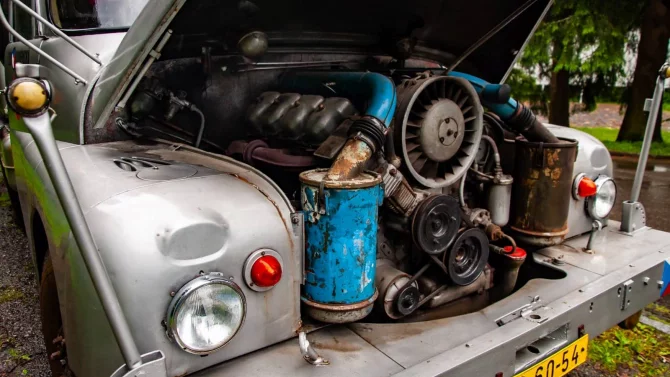...
Supplies of Russian crude oil to refineries in Europe have halted following a stoppage on the Druzhba ('Friendship') export pipeline arising from a dispute between Russia and Belarus. [nL09923878]
Following is the latest from various refineries and the IEA:
IEA
The International Energy Agency (IEA) said on Tuesday that European oil markets would cope with the halt to Russian oil exports and that there was no immediate impact to any of the refineries in the countries involved as they all had working stocks of several days.
Should di.tsruption from the Druzhba pipeline prove more prolonged, each of the refineries could source crude supplies from alternative routes and some of them are already organising alternative supplies, be it through ports at the Baltic Sea or through pipelines coming from other sources, the IEA added.
GERMANY
--Total
Total's refineries in Leuna continued to operate after supplies were halted in the night from Sunday to Monday, the company's spokeswoman said on Tuesday.
She also said the company bought one shipment of crude oil via Gdansk.
The refineries in Leuna receive about 10 million tonnes of crude oil per year through the Druzhba pipeline.
--Schwedt
Shell's PCK Raffinerie has bought crude oil via the German port of Rostock after supplies to its Schwedt refineries in Germany were halted, the company said on Tuesday.
It declined to say how many shipments of oil the company had bought or where they had come from, but said that the tanker has an 80,000-tonne capacity.
The refineries in Schwedt, which source 11 million tonnes of crude oil per year through the Druzhba pipeline, account for about 10 percent of Germany's refinery capacity.
HUNGARY
Hungary's oil imports from Russia, which stopped on Monday, may resume within a few days or in one week, the spokesman of Hungary's Foreign Ministry said on Tuesday after negotiations with Russian and Belarus diplomats.
Oil and gas firm MOL said on Tuesday it will begin receiving oil from Hungary's 90-day strategic reserves by the evening if oil shipments from Russia do not resume.
Economy Minister Janos Koka said he had approved a release at the rate of 15,000 tonnes of crude a day.
POLAND
-- PKN Orlen
Polish PKN Orlen's refinery in Plock will maintain production. The refinery said it was ready to find alternative supplies either by using the country's strategic reserves or the oil terminal in Gdansk or through delivery by sea.
-- Lotos Group
Crude supplies to Lotos Group's refinery at Gdansk in Poland have been halted and the 90,000-barrels-per-day refinery said it would maintain full output until mid-February by using its own crude reserves for the first two weeks and the country's strategic supplies after that.
Lotos said it would be able to cover its full crude supplies by sea should the disruption continue beyond mid-February.
SLOVAKIA
Slovakia-based oil refiner Slovnaft, a unit of Hungary's MOL , will process around 15,500 tonnes of oil a day from its own reserves by Friday, Economy Minister Lubomir Jahnatek told journalists after oil flow through the Druzhba pipeline was halted on Monday evening.
If oil supplies through Druzhba do not resume by then, Slovnaft will be allowed to borrow around 100,000 tonnes of oil from Slovak state reserves, while it will cut its daily processing amount to 11,200 tonnes, Jahnatek said.
Slovnaft said earlier it can also get crude oil via the southern pipeline Adria running through Hungary, but that it does not expect a long-lasting interruption of Druzhba supplies.
CZECH REPUBLIC
The Czech Republic on Tuesday tapped a reserve of between 52,000 and 55,000 tonnes of crude oil stored in Slovakia, which will cover four days of its needs, officials said.
Czech Industry and Trade Minister Martin Riman said that, including strategic stocks, the country had in total reserves for 122.5 days.
He also said if Druzhba stoppage lasts, the Czechs could raise pumping through the IKL pipeline, which hooks up to the TAL pipeline system in Germany and the Italian port of Trieste.
This pipeline has an annual capacity of 10 million tonnes, which would fully cover Czech needs of around 8 million tonnes.
The main Czech processor is Ceska rafinerska, majority-owned by Unipetrol . Shell , ConocoPhillips and ENI hold minority stakes.
((London energy desk, editing by William Hardy; agnieszka.flak@reuters.com; RM: agnieszka.flak.reuters.com@reuters.net))
Keywords: RUSSIA PIPELINE/FACTBOX
[Reuters/Finance.cz]




 Elektromobil jako ojetinu nikdo nechce. Velký český autobazar skončil s jejich nákupem i prodejem
Elektromobil jako ojetinu nikdo nechce. Velký český autobazar skončil s jejich nákupem i prodejem
 Youtubeři zkoušeli, jestli nastartují Tatru 138 odstavenou osmnáct let. Výsledek nikoho nepřekvapí
Youtubeři zkoušeli, jestli nastartují Tatru 138 odstavenou osmnáct let. Výsledek nikoho nepřekvapí
 Test Hyundai Santa Fe 1,6 T-GDI Hybrid: má recept na úspěch i bez naftového motoru?
Test Hyundai Santa Fe 1,6 T-GDI Hybrid: má recept na úspěch i bez naftového motoru?
 Povinnosti účastníků provozu účastníky provozu mnohdy zaskočí. Dnešní kvíz prověří, jestli své povinnosti znáte
Povinnosti účastníků provozu účastníky provozu mnohdy zaskočí. Dnešní kvíz prověří, jestli své povinnosti znáte
 „Přišel pěšky, odjel vlastním vozem“: slogan autobazarů měl charakterizovat prodeje ojetin v Československu
„Přišel pěšky, odjel vlastním vozem“: slogan autobazarů měl charakterizovat prodeje ojetin v Československu
